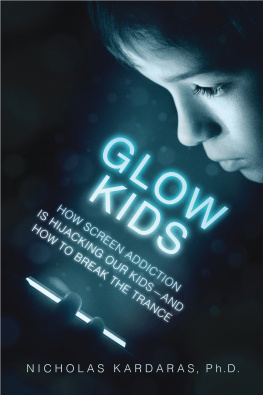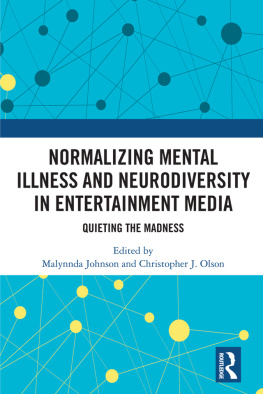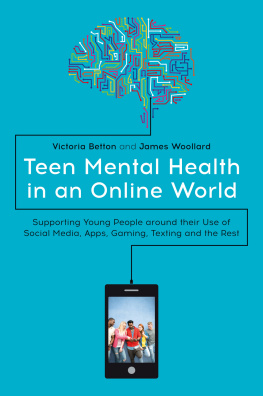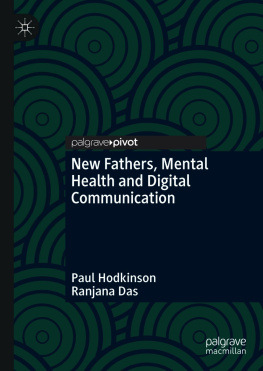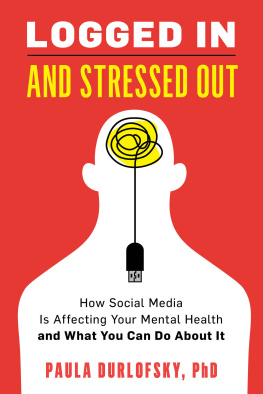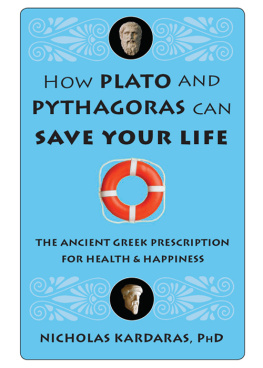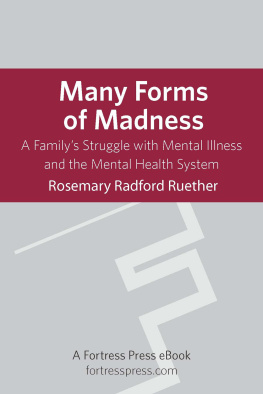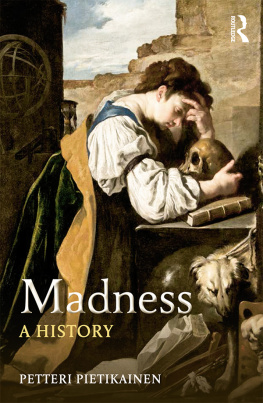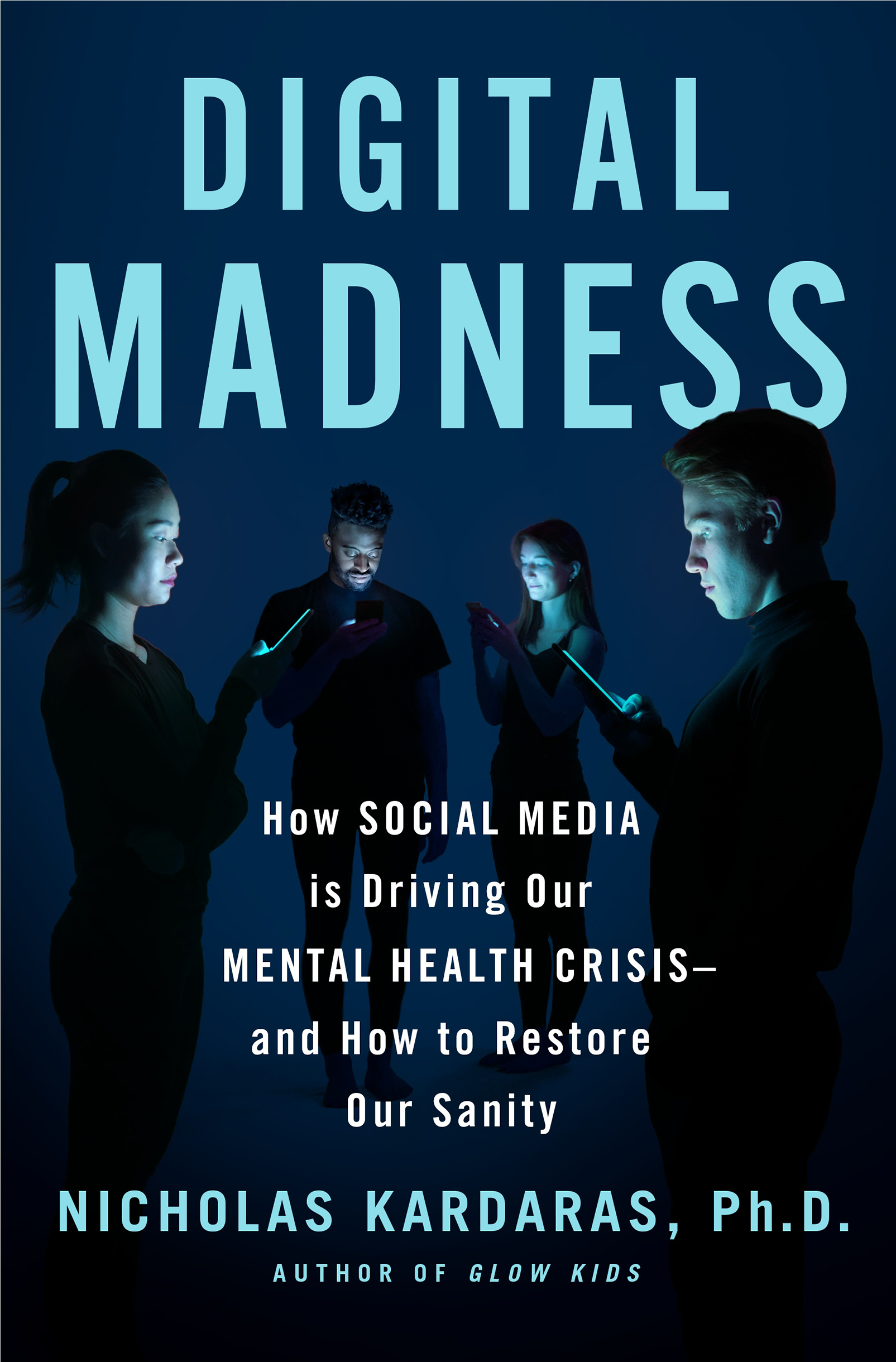Contents
Guide
Pagebreaks of the print version

The author and publisher have provided this e-book to you for your personal use only. You may not make this e-book publicly available in any way. Copyright infringement is against the law. If you believe the copy of this e-book you are reading infringes on the authors copyright, please notify the publisher at: us.macmillanusa.com/piracy.
To the memory of my mother and father,
and to the life to still live with my wife, Luz,
and my sons, Ari and Alexi
It is no measure of health to be well adjusted to a profoundly sick society.
Krishnamurti
It was the Before Times: late July 2019.
Just a few short months before the COVID pandemic would hit New York like a viral nuclear bomb in early 2020, I was talking to my father at his kitchen table in Woodside, Queens. He was dying from cancer, slowly and quite painfully; he only had a couple of months left and wouldnt live to see what COVID would soon do to our world during the most surreal of years.
Yet he was prescient about some of our troubling and toxic societal dynamics that COVID only helped to amplify. My dying Greek father, being of a different time and place, had an intuitive sense that something was profoundly wrong with the way that we lived.
During those last couple of months of his life, I would fly to New York every week from my home in Austin where I ran a mental health clinic, as we both did our best to savor our final times together. Once strong and proud, now that the cancer had spread to his bones, he was reduced to catheters and a wheelchair, where every movementno matter how slightled to a sharp grimace and a low moan of pain.
As a teenage boy, hed survived the Nazis invading his village in northern Greece; lived through the bloodshed of a communist civil war; survived a transatlantic migration by sea to the Washington Heights section of New York during the 1960s; survived working three jobs, seven days a week, for decades to support his family and put my brother and me through college in the hopes that wed have a better life. But he couldnt survive the onslaught of a relentless cancer.
It was heartbreaking to see his deterioration. Yet while every organ system in his body was rapidly beginning to fail him, at eighty-eight, his mind remained razor sharpmaybe too sharpas he would often surprise me with his insights and clarity about things. We would talk politics, current events, scientific advancements, feuding relatives anything, really.
In a world of Kardashian-esque frivolity and inane tweets, he was from an earlier time where people said what was on their minds and didnt mince their words; there was a clarity to his thinking, a moral and intellectual certitude uncluttered by the fads of the day.
But he had begun to feel like an anachronism, like a stranger in an increasingly strange land. As we would sit and talk about things that excited me in the rapidly changing world around useverything from AI to social media and the evolving nature of identityhe would smile his knowing smile and say, Ah, Niko Im glad Im not going to live long enough to see the world that you describe.
He didnt understand a world dependent on technologyone where people didnt look each other in the eye, where they were stuck in front of a screen for hours on end and felt lost and empty. He hated what he saw as our tech obsession. A devoted lifelong gardener who also loved to cook for everyone as an expression of his love, hed chide me as I kept checking my phone for work messages during my visits: Niko, stop looking at that stupid thing and be here if youre going to be here. He had never heard the much-hyped word mindfulness; he had never read Be Here Now by Ram Dass but he got it. Better than most.
Hed laugh when Id tell him that parts of Greece were Blue Zones, known for longevity; that maybe he would defy the doctors and have many more years left to live, like his father, who lived well into his nineties. Niko, I dont know about Blue or Red Zones; I know I live here now. But I also know that we lived a simpler life then. A more human life. All this nonsense today its not the way people are supposed to live.
He had grown up in a tiny and remote mountain village in northern Greece during the 1930s and 40s. There was no electricity, no indoor running water. It was a cold and spartan existence. Yet he would talk about his childhood (at least before the Nazi invasion) as a special time of peace, joy, and a profound love of nature. The trees he planted in his village as a boy still stand today as towering living examples of his symbiotic relationship with the natural world: he nurtured nature, and nature nurtured him. People did work hard, but there was a purposeful pace, not the frenetic and chaotic cacophony of modern city living. And the values were different; genuine relationships were more important than things like money or the right car.
I began to wonderyes, while we often tend to idealize life in the pastif maybe there was some merit to what he said. After all, for the past decade, as both an author and a psychologist, I had written about the impacts of the modern age on our deteriorating mental health and run clinics around the country treating all manner of psychiatric and addictive distressissues that only seemed to be getting worse.
And I had spent the last few years trying to better understand a simple conundrum: Why is our mental health deteriorating as we become a more technologically advanced society? After my dad died, I began to realize that his life may hold many of the answers to the modern problems I was trying to better understand: why were so sick and getting sicker.
And make no mistake, weve become a very, very sick society.
While we lose ourselves in the digital masturbation of Candy Crush, Instagram, and YouTube kitty videos, were dying in record numbers: more than two hundred thousand people, mostly young adults, died in the United States in 2019before COVIDfrom psychologically driven deaths of despair (suicide, overdose, and alcoholism). Add the record rates of loneliness, anxiety, depression, extremism, political unrest, and mass shootings and you have the telltale signs of a society on the brink.
Post-COVID, those numbers and volatile dynamics have only gotten much worse.
Whats happening?
The answer is that humans simply arent genetically designed for technologically driven twenty-first-century living; we arent meant to be sedentary, screen-staring, atomized, and meaning-devoid beings. The unfortunate reality is that modern life is antithetical to our hunter-gatherer psychological needs; were hardwired for face-to-face community, genetically designed to be physically active, and psychologically primed to seek meaning.
But the digital age is kryptonite to those sanity-sustaining needs. Were all living in a world gone mad, driven insane by a digital rat race of overworked, under-slept, cubicle-confined, sensory-overloaded, lonely, meaning-devoid, overstressed people who are perpetually turned on and plugged in, yet never really allowed to recharge and be fully human.
And all of this doesnt include the digital holy grail of the metaverse that Mark Zuckerberg has said he wants us all to inhabit. His vision of our future is an embodied internet, a holographic and augmented immersive shared reality in a virtual universe where wed all live our lives. I guess Zuckerberg somehow missed


